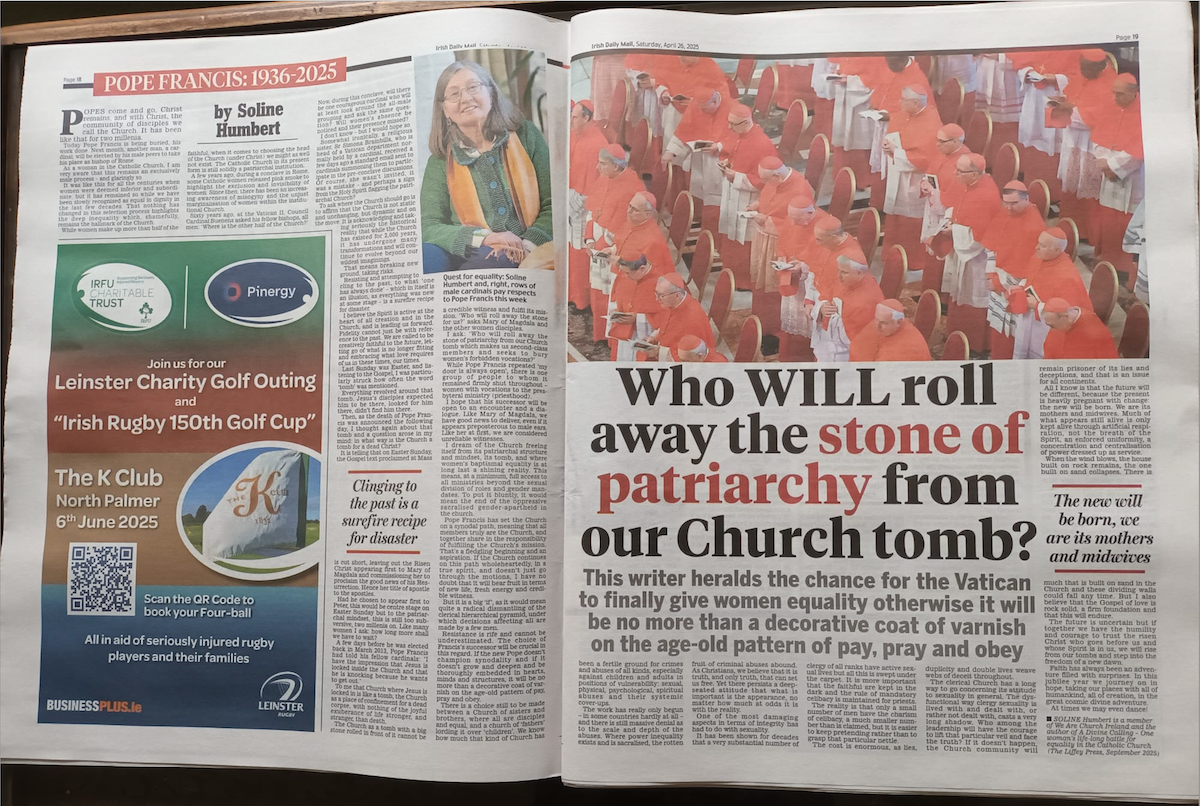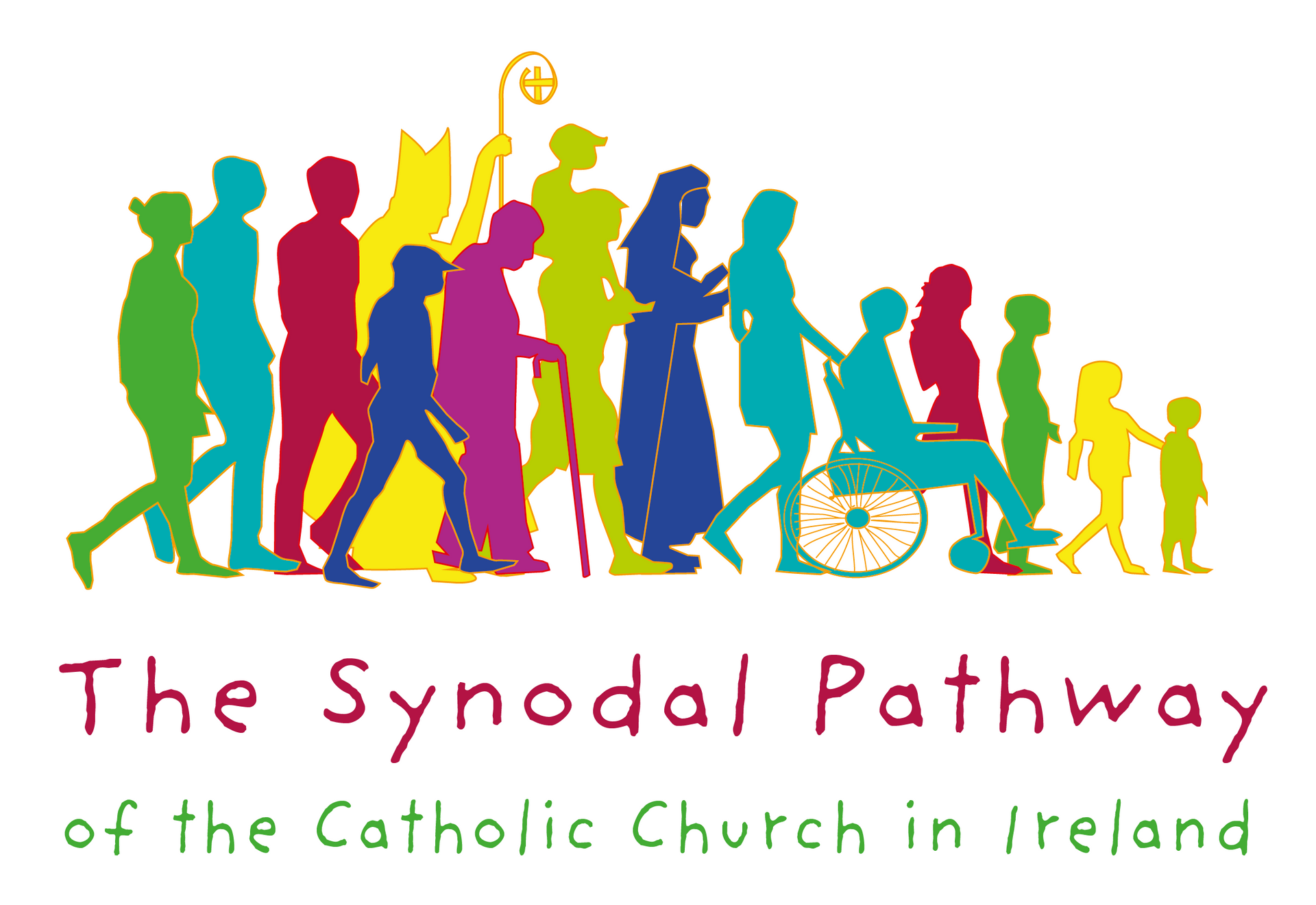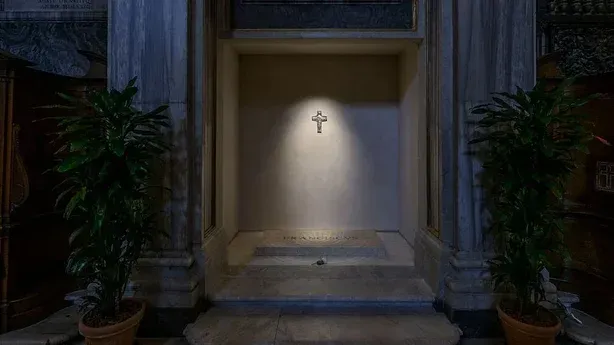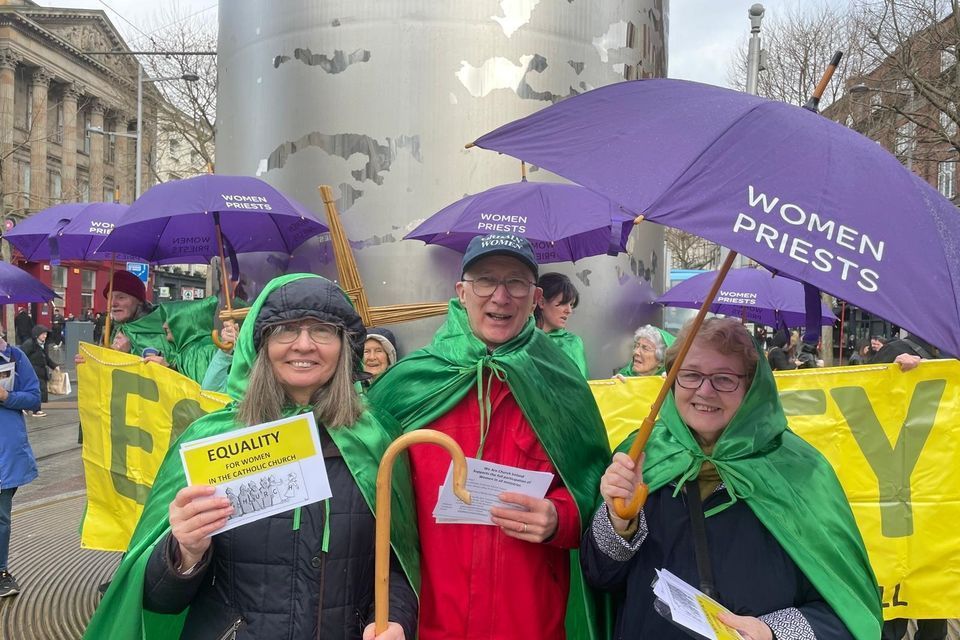Is Pope Francis warning the Roman Curia?
John O'Loughlin Kennedy • 5 May 2021
Eleven examples of where the curia has failed to implement decisions of Vatican ll
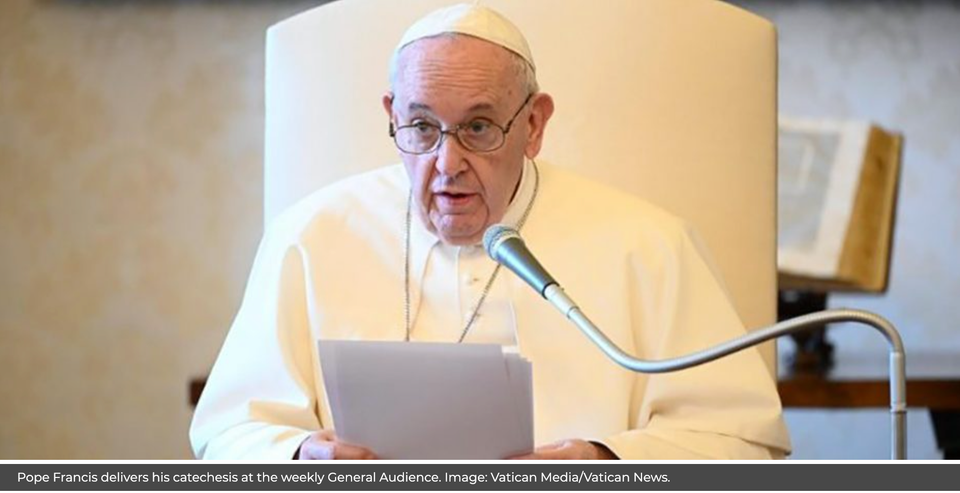
Pope Francis made it clear recently that unless one accepts the magisterial authority of the Second Vatican Council (1962-65), one is not “with the Church”.
He was speaking to the catechists of Italy, but that part of his message was clearly addressed to a wider audience. The media understood this and gave it widespread coverage. The pope said there could be “no concessions” or “selectivity” and that “we must be demanding and strict on this point”.
His uncharacteristically stern call for acceptance prompts speculation as to where he has encountered resistance to the Council. It is not among the laity.
The many organizations calling for reform that have sprung up around the Catholic world are characterized by a demand for the full and honest implementation of the Council.
The outstanding need for Francis’ exhortation is located much closer to home: in the Roman bureaucracy.
Nowhere have the deliberations of Vatican II encountered more resistance and prejudicial reinterpretation than in the papacy itself. Nowhere has the lack of respect for the authority of the Council been more apparent than in the actions and inactions of the Roman Curia.
Every bureaucracy prioritizes its own power and authority and tries to control or suppress competing power centers. The curia is no exception.
While the infallibility conferred on the pope in 1870 had conditions attached which have limited its use to one occasion since then, the “infallible” title itself has allowed the papacy to present many fallible teachings as if they were infallible.
“You are mistaken, the curia is the pope”
While nobody claims that papal encyclicals and apostolic letters are infallible, key elements extracted from them are routinely treated as infallible. The growth of this practice over the years is known among the clergy as “creeping infallibility”.
It is in fact pseudo-infallibility and there is now so much of it that its defense is taking top priority, lest confidence in the papacy be imperilled. Defending the indefensible leads to faulty reasoning, deception and even to lies.
The Roman Curianormally manages and controls access to the popes, who tend to be elderly and hopelessly overworked. It outlasts them. It selects the bishops, rules them, and controls their promotion. It controls episcopal conferences through imposed statutes. The curia is thus the effective government of the Church.
Pope John Paul II confirmed this after 17 years’ experience in the office when he told Cardinal Paulo Evaristo Arns of Brazil, “You are mistaken, the curia is the pope.
“The resistance of the curial bureaucracy to the Second Vatican Council was evident from the day Pope John XXIII announced his intention of calling it. They issued a press release which misreported what he had said.
His warm and welcoming invitation to the other Christian Churches was watered down and deliberately chilled. His reference to them as “Christian Churches” was edited to read “separated communities” and his invitation to “a banquet of grace and brotherhood” became a call to “follow Us … in this search for unity and grace”.
Thus, John’s deliberate openness to ecumenical possibilities between the Churches was replaced with an invitation to reunion —an invitation which had been rejected consistently by Protestants everywhere since the Reformation.
The Roman Curia, which can boast no theological or scriptural grounding beyond being a helper to the Bishop of Rome, was aware that ecumenism would pose a threat to its dominance and power. It could not openly challenge Pope John, of course, but as managers of the meetings and of official communications it continued its resistance piecemeal throughout the entire Council.
One of the most respected of the participating theologians, Fr Yves Congar, decried “the people of the curia, who are felt to be trying to sabotage the Council”.
Proposal for collegial governance outmaneuvered
The Council was about reform, but the need to defend exaggerated infallibility demanded that no teaching should change, although some did change. Moreover, the self-perpetuating bureaucracy that runs the church feared the loss of power that would accompany ecumenism or any change in governance.
The idea that the College of Bishops could provide better long-term governance had emerged organically from the Council discussions. It gained a momentum during the third session(1964) that could not be halted.
Instead, in was forestalled.
When the bishops reassembled for the fourth session (1965) expecting to discuss how collegial governance would be implemented they were faced with a fait accompli.In the opening address and in an apostolic letter promulgated one day later, they learned that in place of the proposed governing body of bishops, Pope Paul VI was establishing an advisory Synod of Bishops.
Its structure and statutes had been decided in detail. It would be under the control of the curia.
A new permanent Church institution was being set up. Incredibly, the bishops of the world, already assembled in Ecumenical Council, were not given an opportunity to decide, or debate the matter. Their opinions at that stage could only have been an embarrassment.
The proposal for collegial governance of a more ecumenical church had been outmaneuvered and the hegemony of the curia, safeguarded.
Eighteen years later, the new Code of Canon Law, was prepared by the curial experts. They dutifully recognized the concept of collegiality, only to consign it legally to oblivion. The code legislated that the College of Bishops could only meet to discuss a controlled agenda when summoned by the pope. This put it also under the control of the curia.
Eleven areas where Vatican Council II has not been followed
Since the Council, the papacy has consistently professed acceptance of its spirit and letter. Many actions, however, belie the protestations.
Eleven of these are touched on briefly here. A more reasoned and nuanced treatment can be found in my recent book, The Curia is the Pope.
- The Council had reversed Pope Pius XI’s condemnation of ecumenism, declaring instead that it was a “movement, fostered by the grace of the Holy Spirit”. After Pope Paul VI died, the papacy put the brakes on ecumenical progress, and it has even defined new obstacles. The “ecumenism spring” that followed the Council suddenly became an Ecumenical Winter that has lasted forty years.
- The implementing revisions of canon law were stalled until after the death of Pope Paul VI who was deeply committed to implementing the Council.
- Freedom of religion and the primacy of conscience were major decisions of the Council. They have not yet been applied within the Church.
- The Council expressed dissatisfaction with Catholic moral theology. Its call for a renewal”more thoroughly nourished by scriptural teaching” has been ignored by the curia, except for persecuting theologians and pastors who dared to make a start on it.
- The Council turned away from defining infallibilities, even inadvertently. Yet the curia continues to burden the faithful with pseudo-infallible teachings.
- The Council decreed that”a fitting revision of diocesan boundaries be undertaken prudently and as soon as possible”. This has not been done.
- The Council specifically gave the responsibility for vernacular translations of the liturgy to the to the bishops in their relevant language groups. The curia reversed this Council decision and took back this work. For the English-speaking world, this has resulted in a liturgy in a Latinized English that certainly is not the vernacular, that nobody wanted and that is very alienating foremost people. Moreover, the curia banned the sharing of common texts with other Christian churches and recently opted for an English translation of the Bible that is less scholarly and uses sexist language to create more alienation.
- The Council confirmed that the Eucharist is the source and summit of our spiritual life. The papacy has consistently prioritized traditional practices, regulations, prejudices and the prerogatives of the professional priesthood ahead of Christ’s Eucharistic mandate,”do this”, and his instruction to “make disciples of all the nations”.
- The Council stressed that “in Catholic teaching there exists an order or ‘hierarchy’ of truths, since they vary in their relationship with the foundation of the Christian faith”.This has been played down by the curia. If taken seriously, it would lead to a seismic reordering of priorities.
- In drafting Lumen Gentium, the Dogmatic Constitution on the Church, the Council very deliberately prioritized its chapter on the People of God ahead of that on the hierarchical structure. This was not what the curia had intended. Wherever possible since then, the curia has avoided using the phrase”People of God” with its inference that Christ’s promise to be with us to the end of the age was addressed to his entire Church.
- The Council recommended the setting up of episcopal conferences. Although these were potentially competing power centers, the bureaucracy could not be seen to oppose them openly. Instead, it later abused holy obedience to foist statutes on the conferences that had the effect of emasculating them. Their decisions can only be made by unanimous vote. If one bishop is found to disagree, the decision must revert to Rome. And Rome can easily bully an individual bishop. The insistence on absolute unanimity for relatively trivial decisions compares oddly with the ruling in 1870, by Pius IX, that allowed papal infallibility and universal jurisdiction to be imposed on the consciences of Catholics “irrevocably” by a simple majority vote!
A lasting reform of the Roman Curia is still possible
This list proves that Pope Francis’ call for loyalty to the Second Vatican Council needs to be heard in the Roman corridors of power.
The book referred to above explains the inability of the bureaucracy to listen to the faithful. Will it be able to listen to the pope?
Will it be able to hear a warning that applies to itself?
It is now eight years since Francis asked his advisory Council of Cardinals to help him plan the reform of the Roman Curia.
Evidently, this has encountered significant resistance. For as long as the curia is independent of the People of God and controls its own recruitment and internal promotions, its ethos will not change. It can be expected to outmaneuver any gradual program of reform initiated by a pope, if not in his lifetime, then after his death.
However, a lasting reform of the Roman Curia is still possible.
A pope, using his currently unlimited powers could, by edict, decentralize some of the duties of the curia and give them back to the bishops. He could reconstitute the remnant of the curia as an administration serving an enduring governing body of elected bishops headed by the pope, as envisaged by the Council.
This would have to be set up initially with papal appointees to create a counterforce that would resist the push-back of the curia and would survive the reforming pope. It would have to develop its own structures, electoral system, statutes and standing orders, schedule its own meetings and set its own agenda in consultation with the episcopal conferences.
Going forward, it would be composed of the pope and elected bishops, a proportion of whom would retire each year to maintain continuity.
In this way, the reform of the Roman Curia would be fittingly achieved by implementing the great vision of the Second Vatican Council, collegial governance by the bishops with the pope. It would also give the People of God some input into the way their visible Church is run.
So, while Pope Francis did not identify his target directly, there can be little doubt as to who the cap fits and who should be listening when he stresses that “being ‘with the Church’ demands loyalty to the Council”.And we can only hope and pray that Francis and his reforming cardinals will offer “no concessions” to a curia “that does not agree with the magisterium of the Church”.
John O’Loughlin Kennedy
is a retired economist and serial social entrepreneur. With his wife, Kay, he founded Concern in Ireland in 1968 and guided it for its first ten years. In addition to responding to humanitarian crises, Concern currently employs 3,500 people on agricultural development and educational and medical projects in 24 of the world’s poorest countries. His recent book The Curia is the Pope is published by Mount Salus Press
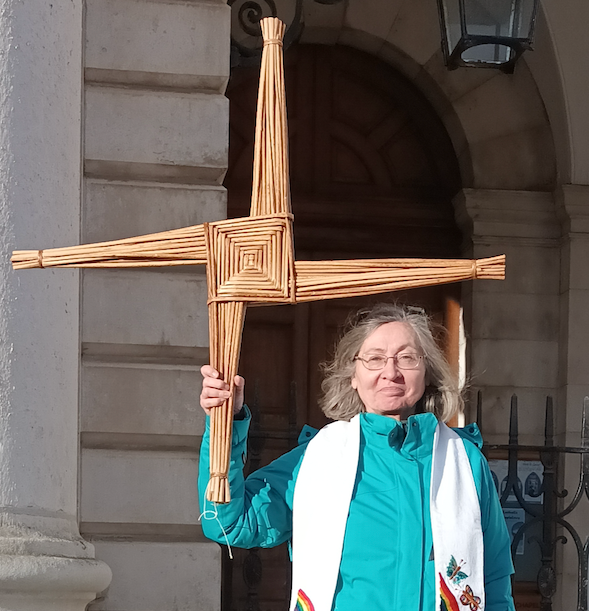
A reflection by Soline Humbert for the Women’s Ordination Conference Retreat “Hidden Springs, Holy Radiance” 9 February 2025 [ see recording on YouTube https://www.youtube.com/watch?v=szP5h1kzEsU ] We have been gathering over the past three days in the presence of Brigid of Kildare, and I am sure she has brought gifts to each one, for my experience is that she is attentive to our needs and very generous with her help. At this stage I just want to share some of my own life journey with Brigid. I first encountered her in 1969 when I came from France to Ireland as a child on holidays to learn English. I went to a small Irish town called Tullow. As it happens it was in Tullow that on the first of February 1807 the order of nuns of St Brigid which had been dissolved at the Reformation, had been refounded by a far-sighted bishop. Symbolically an oak sapling had been brought from Kildare Town, from the church of the oak, to Tullow and planted in the grounds of the Brigidine convent where I took English classes. It was by then a majestic oak tree. It still stands to this day. Coincidentally and somewhat ironically, 1969 was also the year that Pope Paul the 6th removed St Brigid, along with 193 other saints, from the Universal Roman Calendar of saints. The reason being that there wasn’t enough evidence for her existence! That despite the fact she was the most mentioned Irish person in the writings of several centuries after her death... What was true was that her flame had been somehow extinguished, and her importance diminished in a deeply clericalised and patriarchal church as Ireland was at the time. She was in the shadow of St Patrick and very much the secondary patron Saint, reflecting the secondary position of women in general. But change was slowly happening. Having discovered in myself a vocation to the priesthood I eventually co- founded a group for women’s ordination and launched a petition to open all ministries to women in February 1993. At the very same time, which I consider providential, the flame of St Brigid was rekindled by the Brigidine sisters in Kildare Town. Women were stirring after a very long wintertime in the church and in society and becoming more fiery. Brigid with her torch was blazing a way for equality. It is then, and only then, that I came across the story of her ordination as a bishop and I remember my astonishment for I had never read anything like that before, or since, for that matter. Of course, while this fact was mentioned in many of the lives of Brigid going back to the first millennium it had been quietly left out of the pious descriptions of her life which were fed to the people. The way the story is recounted makes it clear that her ordination was considered to be very much the doing of the Holy Spirit. Objections about her gender were voiced but powerless to negate what God had done. It reminds me very much of the passage in the Acts of the Apostles when St Peter is amazed to discover that the Holy Spirit has descended on Cornelius, a gentile, and which leads him to conclude that “God has no favourites”. Brigid’s episcopal ordination at the hands of a bishop overcome by the Spirit is also a powerful affirmation that when it comes to ordination God has no favourite gender. Her ordination’s divine origin shows that Brigid was a bishop because God ordained it, and her. A very subversive truth our Church has yet to learn... As we campaigned for women’s ordination we made sure that this episode from Brigid’s life was brought into the open, again and again, despite clerical efforts to dismiss this dangerous historical memory as pure legend and keep it buried. Interestingly when the Anglican Church of Ireland, (Episcopalian) ordained their first woman bishop in 2013 it was to the diocese of Meath and Kildare! A very symbolic act. I have often gone to St Brigid’s Well in Kildare, a little oasis of peace, to spend some time with Brigid and re-source myself by the gently flowing water. After the First Women’s Ordination Worldwide Dublin international Conference in 2001 I went there again on the anniversary of my baptism and I hung my purple stole on a tree overlooking the well. I had worn that stole for many years as a sign of waiting. From now on I would wear stoles of other colours. And a few years ago, I found myself back in Tullow, as a guest speaker at the invitation of the Brigidine sisters for an international celebration. It was very moving to be able to speak of my calling to priesthood in the place where the order of St Brigid had been revived and where I had first come as a child half a century beforehand! That day I sensed very much the presence of Brigid the bishop and I was filled with joy and gratitude. In some ways we can say St Brigid has risen up and is leading the way for women to rise up. Although a woman in what was very much a man’s world and a man’s church, Brigid exudes a remarkable confidence in her being, in her words and in her actions. No doubt that confidence was rooted in a deeply contemplative life nurtured by prayer. “From the moment I first knew God, I have never let him out of my mind, and I never shall”. She embodies the authority which stems from being filled by the Spirit and a leadership at the service of peace, justice, hospitality to the strangers, charity to the poor and marginalised, reconciliation, healing and harmony with creation and care of the earth. The two Scripture readings we have just heard are very fitting for she was renowned for her practical care and generosity to those in need or suffering. Like Christ, she went around doing good. I must not be the only one who saw and heard in Episcopalian bishop Mariann Budde’s recent words the spirit of St Brigid as she used her God- given authority to plead for mercy for the people in vulnerable situations in the face of unbounded cruelty. Brigid is a bold, dynamic presence. She is said to be a woman of the threshold, of liminal places, and she is a sure guide for our times when we also are in transition on the threshold of a new church and a new world too. She calls to us to step boldly forward with our torches burning brightly, bringing the light and warmth of God’s Love to a world gone cold in the grip of darkness and despair. Her life reminds us that with “God nothing is impossible” and to expect miracles. I shall end on a light- hearted note: I went on pilgrimage to St Brigid’s Well and Solas Bhride in Kildare last Tuesday to prepare for this retreat. On the way back from the well and driving through the wide expanse of the Curragh where thousands of sheep graze freely I started seeing a multitude of rainbows. It reminded me of one of the many whimsical stories about Brigid: Caught in a rainstorm, she hangs her mantle on a sunbeam to dry. Dripping from its edges, colourful rainbows form in the water droplets, and her mantle is ‘bright’ with colour. Lady, from winter’s dark, Star of Imbolc, rise! Dance across our threshold: Scattering warm laughter Seeds of hospitality, Tolerance, forgiveness! Return again to the folk: You the Spring we yearn for! (Tom Hamill)

Women are a problem for the Catholic Church, an institution with ingrained misogyny - Soline Humbert
Papal plámás is no substitute for an end to discrimination against women


